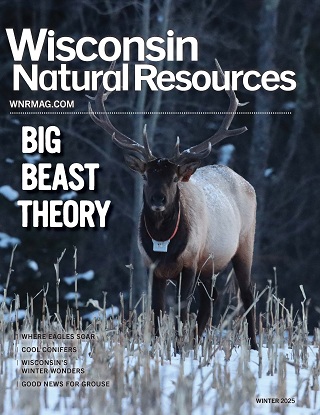Contact: DNRPress@wisconsin.gov
Historic Cleanup Of Lower Fox River Completed After 17 Years
Millions Of Yards of Contamination Cleaned From Riverbed
 The project removed 6.5 million cubic yards of contaminated sediment through hydraulic dredging.
Photo credit: DNR
The project removed 6.5 million cubic yards of contaminated sediment through hydraulic dredging.
Photo credit: DNR
MADISON, Wis. - A successful 17 year-long cleanup in the Lower Fox River is complete through collaboration between Wisconsin Department of Natural Resources (DNR), the U.S. Environmental Protection Agency (EPA), the U.S. Fish & Wildlife Service (USFWS), tribal groups and many private organizations.
"This legendary accomplishment will fundamentally improve the way Wisconsinites live, work and play on the Lower Fox River," said DNR Secretary Preston D. Cole. "Outdoor recreation contributes $7.8 billion to Wisconsin's GDP. Thanks to this cleanup work, people recreating on the Fox River will contribute to that bottom line this Labor Day weekend in a way that was simply unthinkable twenty years ago."
In 2004, the DNR began oversight of the project in partnership with EPA when the cleanup started along 39 miles of the Lower Fox River to address massive amounts of polychlorinated biphenyl (PCB) contaminated sediment. The project removed 6.5 million cubic yards of contaminated sediment through hydraulic dredging, installing engineered caps spanning over 275 acres of riverbed to contain PCBs. Sand was also installed to cover 780 acres. Approximately 10 billion gallons of river water was restored in what is one of the largest sediment cleanups worldwide.
"We commend our partners at the WIDNR and EPA for completing the Fox River PCB cleanup project," said Charlie Wooley, U.S. Fish and Wildlife Service, Midwest Regional Director. "This is a major milestone towards restoring this important landscape."
PCBs are toxic chemicals that were produced during the production and recycling of carbonless copy paper in the 1950s through 1970s. Three companies, NCR, Georgia Pacific and PH Glatfelter, remain active on the river to cover all current and future costs and ensure success of the cleanup for years to come.
"Completing the PCB clean-up moves us one step closer in fulfilling our given responsibility by the Creator, to care for our waters," said Tehassi Hill, Oneida Nation of Wisconsin Chairman. "Soon, we will be able to catch and eat clean, safe fish from the Lower Fox River and the waters within the Oneida Reservation."
During the initial stages of the project, the DNR stepped up to be the lead technical agency, and the EPA served as the lead enforcement agency. The collaborative effort between the two government agencies and the private sector is a hallmark of the project's success. The DNR has a new webpage to provide updates on the project. The EPA issues a formal report to the public every five years, with the next one due in 2024.
"Today's Fox River announcement has been decades in the making," said EPA Region 5 Administrator Kurt Thiede. "The progress that has been made is a perfect example of what can be accomplished when partners are committed to working together toward a common goal."
The main goal of the cleanup is to reduce the risk to human health and the environment. Long-term testing is underway to check for PCBs in fish tissue, sediment and water. Current results are promising with PCB reductions of approximately 90% in river water and sediment compared to concentrations in 2006. PCBs in walleye are down by an average of 65% in upstream areas and are approaching the "unlimited consumption" advisory level. Testing will continue until cleanup goals are met.
The Natural Resource Damage Trustee Council is equally vital in the effort to restore this area. The Fox River Trustee Council includes the DNR, USFWS, the Menominee Indian Tribe of Wisconsin and the Oneida Nation of Wisconsin.
Trustees manage and allocate multi-million-dollar settlement funds to support natural resource restoration projects in the greater Green Bay area. Their work has led to strong partnerships and sweeping successes with everything from working to recover endangered species, to improving waterfowl habitat, restoring Great Lakes spotted musky, investing in fish and wildlife habitat throughout the watershed, to helping the iconic lake sturgeon in Green Bay waters.
"The Fox River Trustees will continue their important restoration work for fish and wildlife recovery to compliment this significant achievement and to uphold our promise to provide a healthier environment for all to interact with and appreciate," said Gary Besaw, Menominee Indian Tribe of Wisconsin Legislator and Department of Agriculture and Food Systems Director.
Restoration projects create more opportunities for fishing, hunting, wildlife watching, recreation and enjoyment of natural resources in Wisconsin. To learn more about Wisconsin's great natural resources visit dnr.wi.gov.

